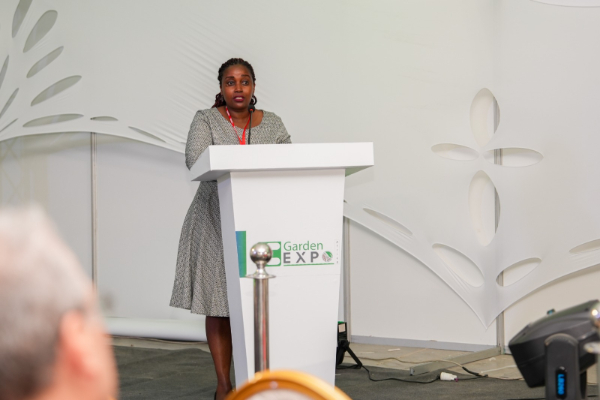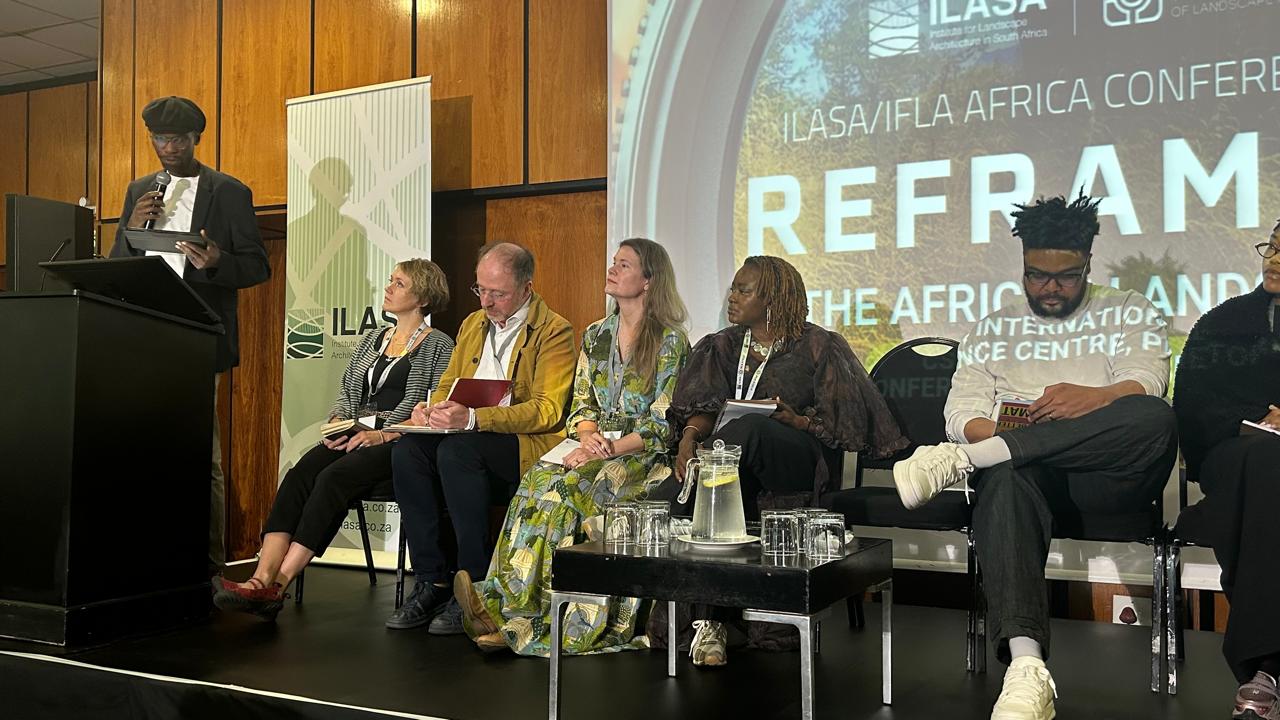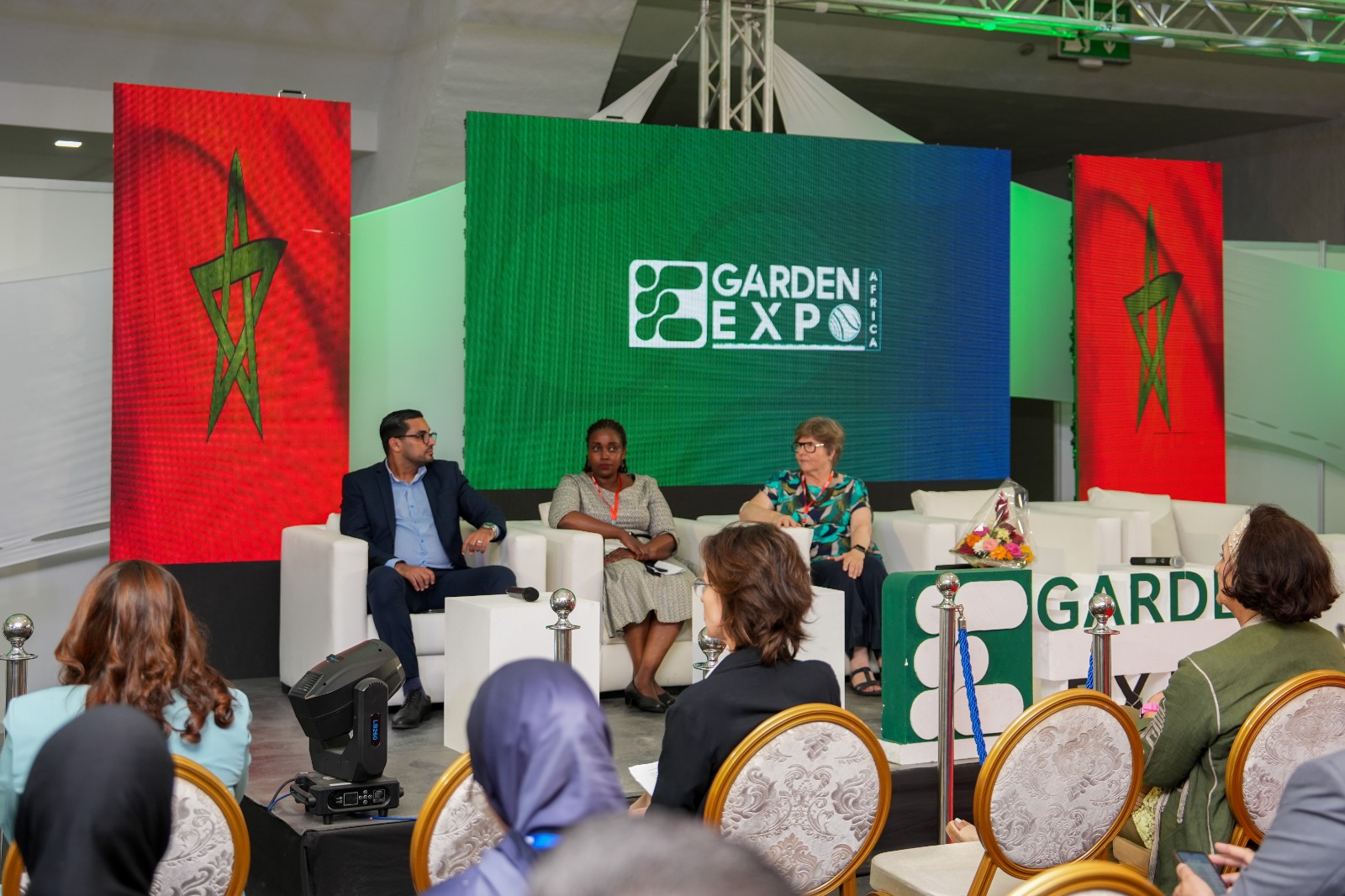
From the President's Desk- October 2025
This past September, colleagues from across the continent and beyond gathered at the CSIR International Convention Centre in Pretoria for our 9th Symposium hosted jointly with the Institute of Landscape Architects South Africa (ILASA) under the theme “Reframing the African Landscape. The two days of presentations, panel conversations and site tours were a timely reminder that our discipline sits at the intersection of culture, ecology and social justice and that our decisions today, will shape diverse African landscapes for generations.
From the influence of practice by Western ideas and the legacy of colonization, to application of culture and Indigenous knowledge in practice, there was plenty for participants to learn from. The discussions and presentations focused on the uniqueness with which we should practice landscape architecture in Africa. Sessions ranged from approaches to landscape pedagogy, to case studies of informal-settlement interventions, to the role of green infrastructure systems, to flexibility and adaptability of landscapes, and landscape water management among others; each one pointing to the conclusion that the future for our profession is adaptive, inclusive and contextual.
There was a consensus by speakers and participants that a single narrative about “African” landscape architecture does not exist. We have plural histories, multiple pedagogies and locally rooted practices that respond to diverse climates, governance systems and lived realities.

Four strategic ideas stood out for me as essential if landscape architecture is to meet the continent’s urgent and long-term challenges.
First, centre local knowledge and design sovereignty. Too often African landscapes are treated as backdrops for imported design tropes. The conference reminded us that vernacular practices, indigenous ecological knowledge and community-driven maintenance systems are design assets, not obstacles. Reframing our curricula and professional standards to value these ways of knowing will produce graduates and practitioners who design with place.
Second, mainstream resilience through multi-scale integrated green infrastructure. Climate change, rapid urbanisation and biodiversity loss demand design responses that operate at multiple scales linking green infrastructure to create a functional ecosystem web. Our role as landscape architects is to translate ecological science into tangible public works that are affordable, maintainable and equitable. We need to advocate and actualise effective collaboration with engineers, planners, architects, ecologists, municipal managers and communities.
Third, grow the pipeline: education, mentorship and platforms for young voices. The student competition showcased remarkable creativity. Supporting students through mentorship and opportunities to present on continental stages will accelerate innovation and ensure our profession reflects Africa’s demographic future.
Finally, we must advocate for procurement rules that reward ecological performance and long-term maintenance, not only lowest upfront costs. We must also partner with national and regional governments to embed landscape objectives such storm water management, heat mitigation, urban food systems into statutory planning instruments. African landscape architecture flourishes when we work together, strengthening our regional networks, supporting exchanges and celebrating excellence.
This year we honored Bernard Oberholzer with the 2025 InSite IFLA Africa Award. The Award recognises outstanding lifetime achievement by a landscape architect from the African region whose work has made a distinctive and lasting impact on the well-being of society and the environment, and the advancement of the profession of landscape architecture in Africa. With 50 years of practice, Bernard has authored several books including "Reading the Landscape" and was instrumental in convening the landscape architecture programme at University of Cape Town and has supported other education programs across Africa. He also serves as an editor of the African Journal of landscape Architecture (AJLA) and was one of the initiators of the idea of the journal.
Marike Franklin also received the IFLA Africa Service Certificate. The IFLA Africa Service Certificate is an honour that IFLA Africa bestows upon a landscape architect or 'friend of our profession', whose service to IFLA Africa has been instrumental in advancing the aims and objects of landscape architecture in our region through service on the executive, working groups and/or other initiatives of IFLA Africa. Marike has been a core team member of the African Landscape Network (ALN) since its inception and has since inception handled the technical coordination for the platform. She has also contributed to lFLA Africa’s growth through other roles such as her work on the International Scientific Committee on Cultural Landscapes (ISCCL) and is an active member of the Knowledge Hub working group for IFLA World.
During the regional meeting, I was honored to take over as the IFLA Africa President, stepping into Graham Young’s big shoes; continuing to chart the path forward, building on the foundation the previous leaders have laid. Since its establishment as an IFLA region in 2011, IFLA Africa has made strides, growing in membership (this year we welcomed Tanzania as our 9th member), hosting nine symposiums, growth in the number of schools training landscape architects in Africa and establishing the ALN and the AJLA platforms.
Congratulations to the new IFLA Africa ExCo team, I look forward to the next two years as we serve IFLA Africa with you.
• Chair, Amos Alao – Secretary General
• Tobiloba Akibo – Communications and External Relations Committee (CER)
• Cecliy Murage – Education and Academic Affairs Committee (EAA) Chair
• Rasha Mahmoud – Professional Practice and Policy Committee (PPP) Chair.
• Madonna Maher - Financial and Business Planning Committee (FBP)
We are grateful to Goabamang Lethugile (Outgoing EAA 2021-2025) and Carey Duncan (Ex- Official Member) for their exceptional service of. Thank you, Graham for your service as President and we are honored to have you on as the Immediate Past President. As we take on the next two years may this be our motto: Carpe Diem
I thank ILASA for hosting the conference, the conference organising committee for a great programme, and every participant who shared ideas and listened.
I would also like to congratulate Association des Architectes Paysagistes du Maroc (AAPM) for a successful 2025 Garden Expo & Conference, held at Casablanca, Morocco 9th - 11th October 2025. During the three day event, the importance of an industry wide collaboration as well as the pivotal role recognition and regulation of landscape architects plays in the industry, were discussed. Manufacturers and suppliers within the landscape sector showcased their innovations and products that were geared towards sustainability and better landscapes. The unique showcase of ecological initiatives, technological solutions, products, and services dedicated to outdoor space design in Africa, showed the immense potential for sector’s growth across the continent.

Both AAPM and IFLA Africa were partnering in the organisation of the event and Carey Duncan and I presented the IFLA’s work in regards to growth, regulation and recognition of the profession.
As we close the conference season and return to our daily practices, may we each reflect on our work and seek to answer this question; how does this project, this policy, this classroom moment advance the dignity and resilience of African landscapes?
Ruth Wanjiku
President, IFLA Africa


